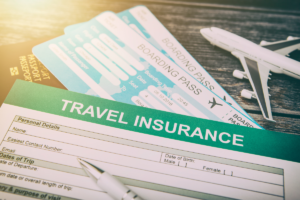Traveling is an exciting and enriching experience that allows us to explore new cultures, try different cuisines, and create lasting memories. However, amidst the adventure and thrill of exploring unfamiliar places, there’s also the potential for encountering scams and fraudulent activities. These scams can not only ruin your trip but also lead to financial losses and safety concerns. In this comprehensive guide, we will explore common travel scams and provide you with valuable tips on how to avoid falling victim to them. Whether you’re a seasoned traveler or a first-timer, staying informed about these scams can help ensure a safe and enjoyable journey.
Research Your Destination Thoroughly
Before embarking on your journey, it’s essential to research your destination thoroughly. Understanding the local culture, customs, and potential risks is the first step in avoiding common scams. Here’s what you should do:
a. Learn about the local customs and etiquette to avoid unintentional cultural misunderstandings.
b. Research the common scams and frauds specific to your destination. This information can be found in travel forums, blogs, and guidebooks.
c. Familiarize yourself with local emergency numbers and the nearest embassy or consulate.
Be Cautious with Transportation
Transportation-related scams are prevalent in many tourist destinations. To avoid falling victim to these scams, keep the following tips in mind:
a. Use reputable transportation providers: Stick to well-known taxi companies, ridesharing apps, and licensed transportation services.
b. Negotiate fares in advance: When taking a taxi, make sure the driver uses the meter or agrees on a fixed fare before starting the journey.
c. Beware of fake transportation options: Avoid accepting rides from unmarked vehicles or individuals posing as taxi drivers.
Protect Your Personal Information
Protecting your personal information is crucial, especially when traveling. Scammers often target tourists to steal their sensitive data. Here’s how to safeguard your information:
a. Use a VPN: When using public Wi-Fi, consider using a Virtual Private Network (VPN) to encrypt your internet connection and protect your data from potential hackers.
b. Be cautious with ATMs: Use ATMs in well-lit, secure locations, and cover your PIN while entering it.
c. Avoid sharing personal information: Don’t disclose personal information to strangers, especially in crowded tourist areas.
Watch Out for Common Scams
While traveling, you may encounter various scams that target tourists. Be aware of these common scams:
a. The “Distraction” scam: Scammers may try to distract you by asking for directions or spilling something on you while an accomplice steals your belongings. Stay vigilant and keep your valuables secure.
b. Fake merchandise or services: Be cautious when purchasing items or services from street vendors, as they may sell counterfeit goods or overcharge tourists.
c. Overpriced tours or attractions: Research and book tours or tickets for attractions in advance to avoid overpaying for experiences.
Stay Vigilant in Accommodation
Your accommodation should be a safe haven during your travels. However, scams can also occur in hotels and other lodging options. Here’s how to stay vigilant:
a. Lock your valuables: Use hotel room safes or lock up your valuables when you leave your room.
b. Verify identity: When hotel staff or maintenance personnel visit your room, ask for identification or call the front desk to confirm their presence.
c. Check for hidden fees: Before booking accommodation, read reviews and verify the total cost to avoid unexpected charges upon checkout.
Trust Your Instincts
One of your best tools for avoiding scams is your intuition. If something doesn’t feel right, trust your instincts and take appropriate action:
a. Walk away from suspicious situations: If a situation or person seems shady, remove yourself from it immediately.
b. Ask for help: If you suspect you’re being scammed or are in danger, seek assistance from local authorities or other travelers.
Use Technology Wisely
Technology can be a valuable resource for travelers, but it can also make you more susceptible to scams if not used wisely. Here are some tech-related tips:
a. Keep your smartphone secure: Use a PIN or fingerprint lock on your smartphone to protect your data.
b. Enable tracking features: Activate location tracking on your device, so you can locate it if it’s lost or stolen.
c. Download reputable travel apps: Use trusted travel apps for navigation, translation, and currency conversion.
Stay Informed about Local Scams
As you explore your destination, stay informed about any new or local scams that may have emerged since your initial research. Scammers are continually evolving their tactics, so it’s crucial to stay up-to-date. Here’s how to do it:
a. Connect with locals: Engage with locals and fellow travelers to share information about recent scams or unsafe areas.
b. Use travel forums and apps: Online travel forums and social media groups can provide real-time updates and advice from fellow travelers.
c. Consult your embassy or consulate: Visit your country’s embassy or consulate for the latest safety information and travel advisories.
Be Mindful of Street Performers and Beggars
While street performers and beggars can add to the cultural experience of a destination, some individuals may use these activities as a cover for scams. Here’s what to keep in mind:
a. Keep your distance: Be cautious when approached by street performers or beggars, as pickpockets may use these situations to target distracted tourists.
b. Avoid giving money directly: Instead of giving money directly to beggars, consider supporting local charities or organizations that help those in need.
Plan Your Finances Wisely
Managing your finances carefully while traveling is essential to avoid scams and overspending. Here are some financial tips:
a. Inform your bank: Before traveling, notify your bank of your destination and travel dates to prevent your credit or debit cards from being blocked due to suspicious activity.
b. Carry a limited amount of cash: Don’t carry excessive amounts of cash with you. Use a travel card or credit card for most transactions.
c. Keep copies of important documents: Make photocopies or digital scans of your passport, identification, and credit cards. Store these securely in case your originals are lost or stolen.
Learn Basic Phrases in the Local Language
Learning a few basic phrases in the local language can go a long way in avoiding scams and building positive interactions with locals. It shows that you’ve made an effort to respect their culture. Here are some phrases to consider:
a. Hello and thank you: Simple greetings and expressions of gratitude can go a long way in establishing a friendly rapport with locals.
b. Asking for help: Knowing how to ask for directions or assistance in the local language can be beneficial and reduce the chances of misunderstandings.
Don’t Share Your Travel Plans on Social Media
While it’s tempting to share your travel adventures on social media platforms, doing so can make you a target for theft or scams. Here’s how to protect yourself:
a. Avoid posting real-time updates: Wait until you’ve left a location before sharing your experiences to prevent anyone from knowing your exact whereabouts.
b. Adjust your privacy settings: Review and adjust your social media privacy settings to limit who can see your posts and personal information.
Conclusion
While the world is full of incredible travel experiences waiting to be discovered, it’s essential to be aware of the common scams that can occur during your journey. By researching your destination, staying cautious with transportation, protecting your personal information, and staying vigilant in accommodation, you can significantly reduce the risk of falling victim to scams while traveling. Trust your instincts, use technology wisely, and always be prepared to seek help if needed. With these precautions in mind, you can explore new places with confidence and create unforgettable memories without the worry of encountering scams along the way. Safe travels!
In conclusion, avoiding common scams while traveling requires a combination of awareness, preparedness, and caution. By researching your destination, staying informed about local scams, being mindful of your personal information, and practicing smart financial management, you can significantly reduce the risk of falling victim to scams. Trust your instincts, stay vigilant, and remember that staying safe and enjoying your journey go hand in hand. With these tips in mind, you can embark on your adventures with confidence and make the most of your travel experiences while staying one step ahead of potential scams. Safe travels and happy exploring!



